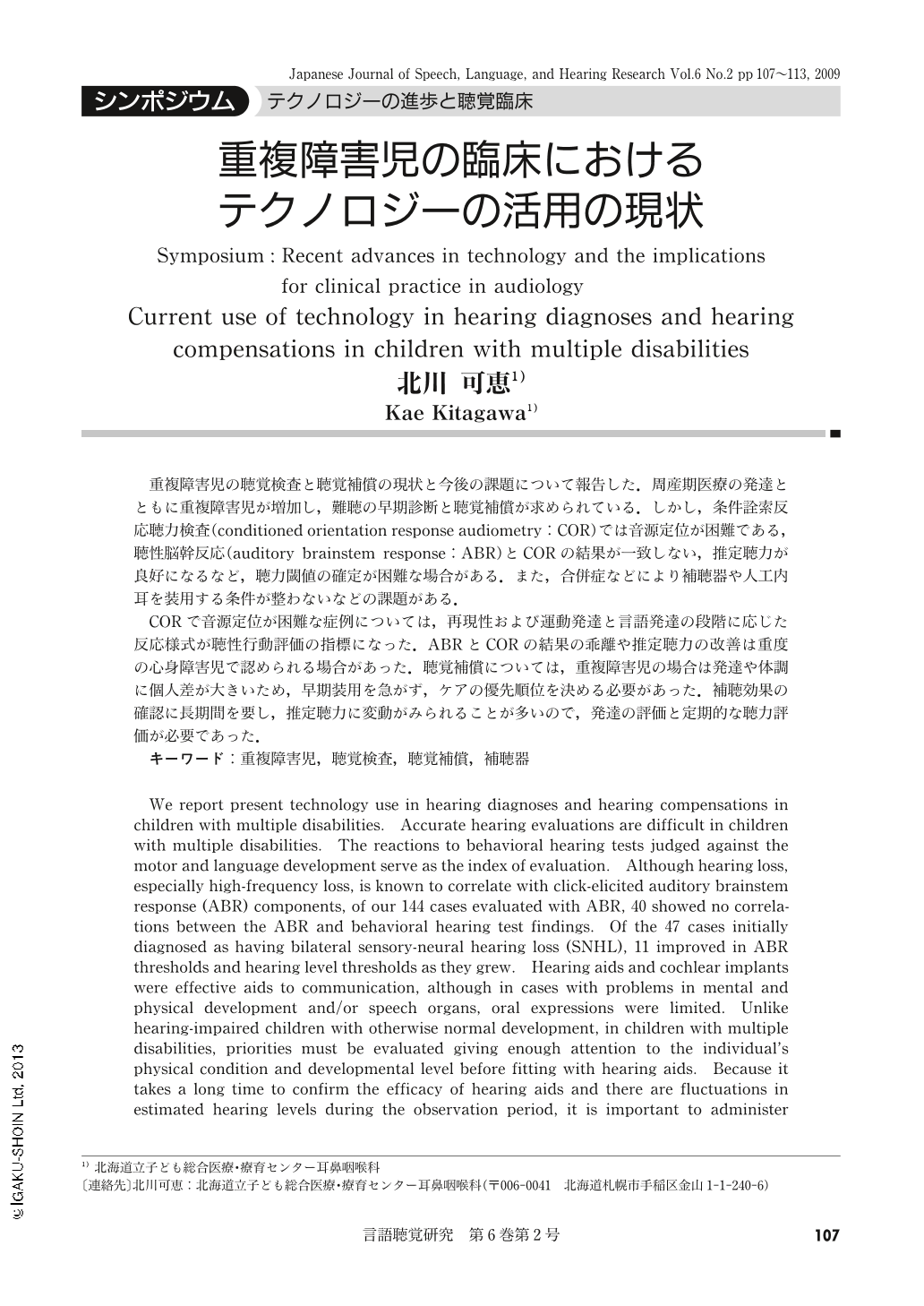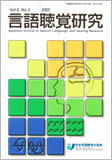Japanese
English
- 有料閲覧
- Abstract 文献概要
- 1ページ目 Look Inside
- 参考文献 Reference
重複障害児の聴覚検査と聴覚補償の現状と今後の課題について報告した.周産期医療の発達とともに重複障害児が増加し,難聴の早期診断と聴覚補償が求められている.しかし,条件詮索反応聴力検査(conditioned orientation response audiometry:COR)では音源定位が困難である,聴性脳幹反応(auditory brainstem response:ABR)とCORの結果が一致しない,推定聴力が良好になるなど,聴力閾値の確定が困難な場合がある.また,合併症などにより補聴器や人工内耳を装用する条件が整わないなどの課題がある.
CORで音源定位が困難な症例については,再現性および運動発達と言語発達の段階に応じた反応様式が聴性行動評価の指標になった.ABRとCORの結果の乖離や推定聴力の改善は重度の心身障害児で認められる場合があった.聴覚補償については,重複障害児の場合は発達や体調に個人差が大きいため,早期装用を急がず,ケアの優先順位を決める必要があった.補聴効果の確認に長期間を要し,推定聴力に変動がみられることが多いので,発達の評価と定期的な聴力評価が必要であった.
We report present technology use in hearing diagnoses and hearing compensations in children with multiple disabilities. Accurate hearing evaluations are difficult in children with multiple disabilities. The reactions to behavioral hearing tests judged against the motor and language development serve as the index of evaluation. Although hearing loss, especially high-frequency loss, is known to correlate with click-elicited auditory brainstem response (ABR) components, of our 144 cases evaluated with ABR, 40 showed no correlations between the ABR and behavioral hearing test findings. Of the 47 cases initially diagnosed as having bilateral sensory-neural hearing loss (SNHL), 11 improved in ABR thresholds and hearing level thresholds as they grew. Hearing aids and cochlear implants were effective aids to communication, although in cases with problems in mental and physical development and/or speech organs, oral expressions were limited. Unlike hearing-impaired children with otherwise normal development, in children with multiple disabilities, priorities must be evaluated giving enough attention to the individual's physical condition and developmental level before fitting with hearing aids. Because it takes a long time to confirm the efficacy of hearing aids and there are fluctuations in estimated hearing levels during the observation period, it is important to administer periodic hearing assessment as well as mental and physical development evaluation.

Copyright © 2009, Japanese Association of Speech-Language-Hearing Therapists. All rights reserved.


